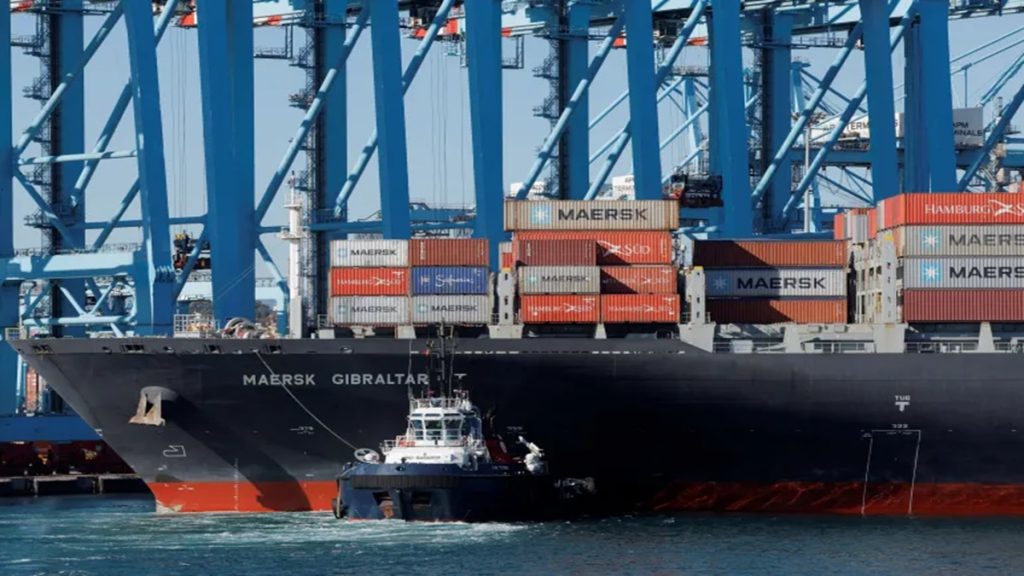Container shipping in the Red Sea has seen a significant decline, down by nearly 30% this year, according to the International Monetary Fund (IMF).
The Iran-backed Huthi rebels are responsible for more than 30 attacks on commercial and naval vessels since November 19, affecting the vital shipping route connecting the Red Sea to the Mediterranean via the Suez Canal.
The IMF’s PortWatch platform reveals a 37% decrease in total transit volume through the Suez Canal this year compared to the same period last year. Huthi attacks have forced some shipping companies to reroute around southern Africa to avoid the Red Sea, a route responsible for approximately 12% of global trade, as reported by the International Chamber of Shipping.
The European Union’s trade commissioner noted a 22% decrease in maritime traffic through the Red Sea shipping route within a month due to the rebel attacks.
The EU, concerned about the impact on international shipping, is considering launching its naval mission in the Red Sea. Initial backing for this plan has been received, with a final decision expected during a meeting of EU foreign ministers on February 19.
Despite repeated strikes by the U.S. and Britain against Huthi capabilities in Yemen, the rebel group continues to pose a threat to vessels. The IMF’s briefing coincided with the release of a revised economic outlook for the Middle East and North Africa, reflecting the impact of the Israel-Hamas war. The IMF now projects a 2.9% expansion in the region’s economies this year, a 0.5% decrease from its October forecast.
The IMF warns that without a quick cessation of hostilities and reconstruction, the economy is projected to continue contracting in 2024. For emerging market and middle-income economies in the region, the IMF predicts total funding requirements of $186 billion in 2024, up from $156 billion in 2023.
